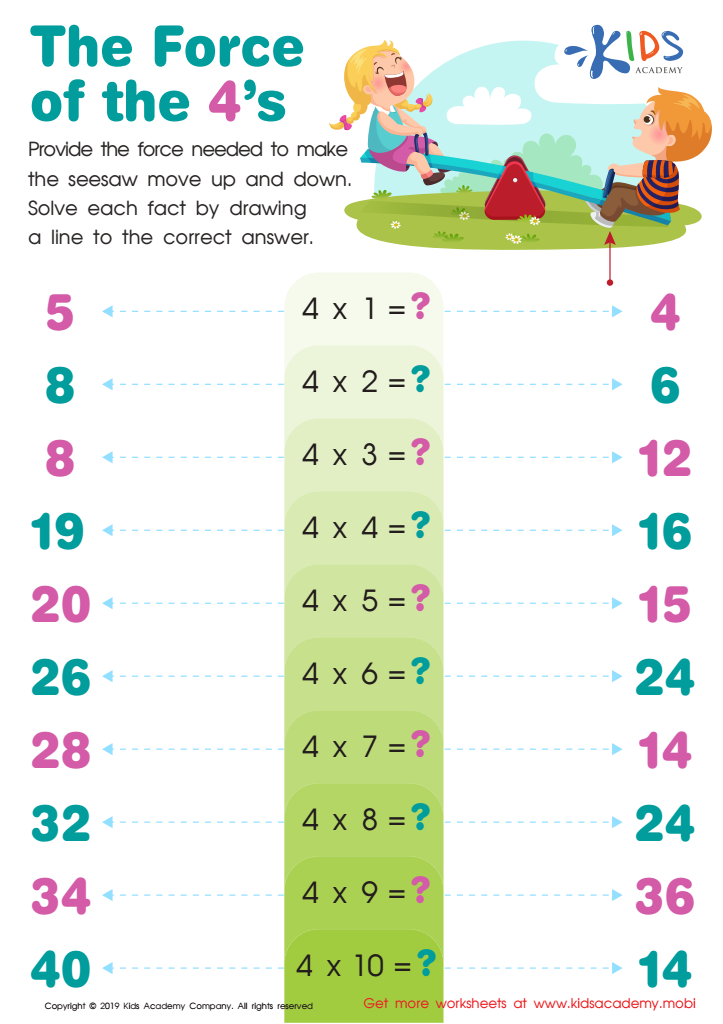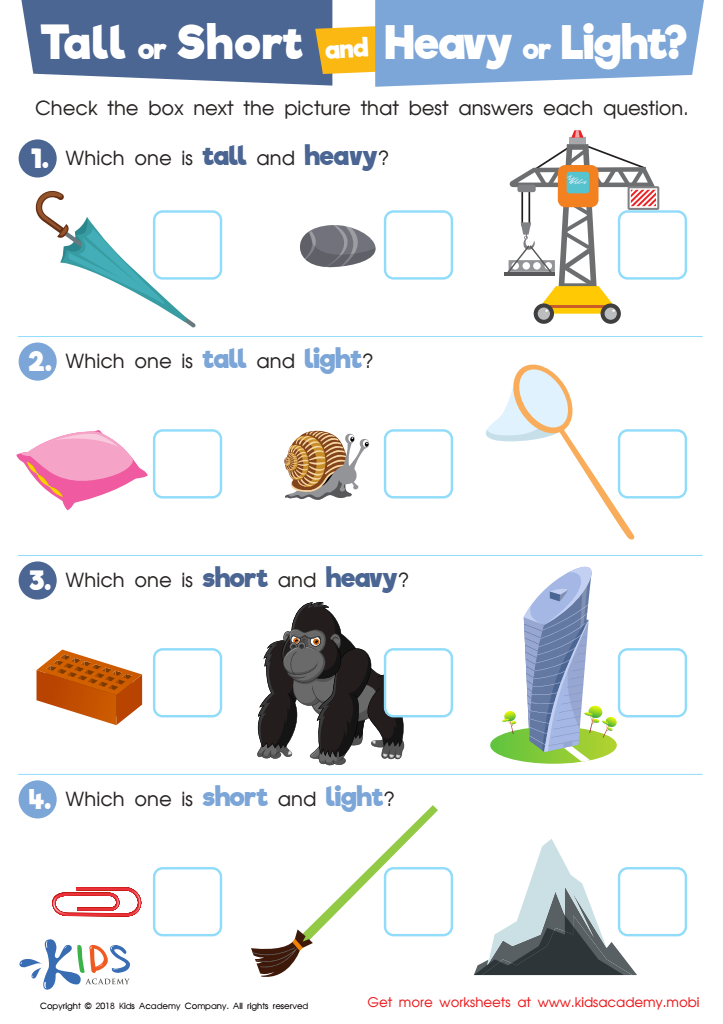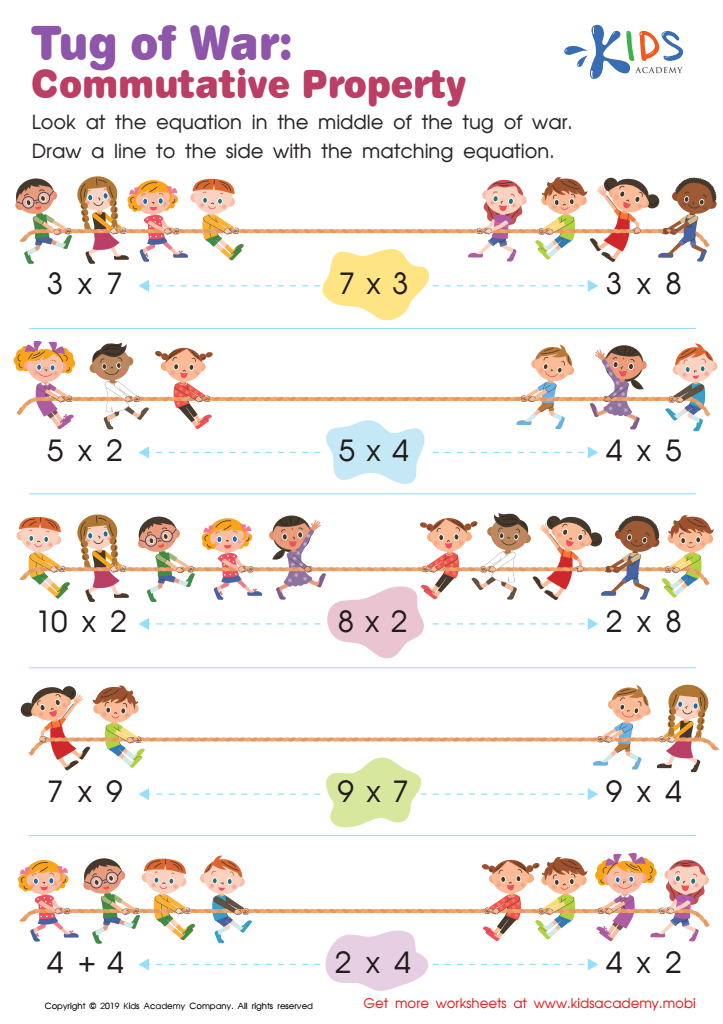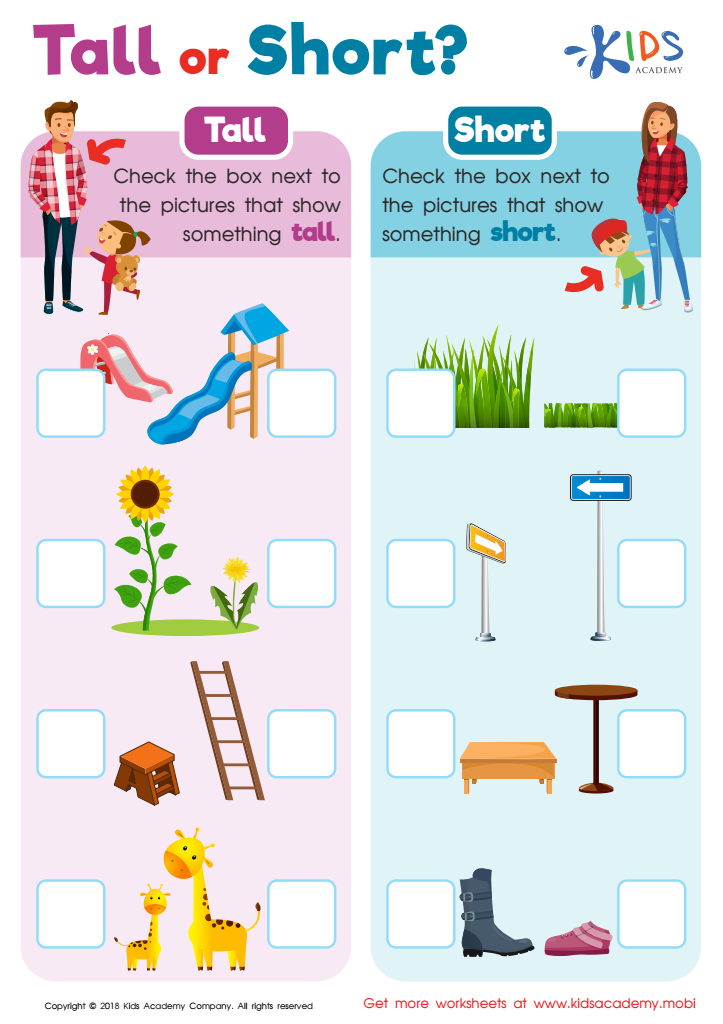Easy Sorting worksheets activities for Ages 5-9
4 filtered results
-
From - To
Unlock fun and learning with our Easy Sorting Worksheets and activities, designed specifically for kids aged 5 to 9! These engaging resources help young learners develop vital logical thinking and classification skills through playful sorting tasks. Each worksheet features colorful images and simple instructions, making it easy for children to differentiate and categorize various objects. From sorting shapes and colors to organizing animals and everyday items, these activities foster critical thinking while keeping kids entertained. Perfect for both classroom and home use, our printable worksheets are ideal for nurturing young minds and promoting independent learning. Dive into sorting fun today!


The Force of the 4's Worksheet


Tall or Short and Heavy or Light? Worksheet


Tug of War: Commutative Property Worksheet


Tall or Short? Worksheet
Easy sorting activities are vital for children aged 5-9 as they lay a foundational understanding of various cognitive skills necessary for lifelong learning. Engaging children in sorting activities helps develop their logical reasoning and critical thinking abilities. As they classify objects by size, shape, color, or function, they develop classification skills that enhance their ability to organize and analyze information.
Moreover, sorting activities promote fine motor skills as children manipulate various items, supporting their physical development in pre-writing and self-care tasks. They also foster early mathematics skills, introducing concepts such as sets, relationships, and patterns, which are crucial for proficient mathematical understanding later on.
Social interaction is usually part of sorting tasks, encouraging teamwork and communication among peers. When parents or teachers guide children through these activities, they offer valuable opportunities for collaboration, problem-solving, and negotiation.
Additionally, sorting inspires creativity as children come up with unique ways to categorize items. This open-ended exploration fosters curiosity and a love for learning. In essence, easy sorting activities ignite cognitive development, enhance social skills, and lay the groundwork for future academic success, making them a vital focus for parents and educators alike.
 Assign to My Students
Assign to My Students















